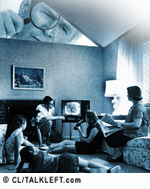....The nuclear surveillance program began in early 2002 and has been run by the FBI and the Department of Energy's Nuclear Emergency Support Team (NEST). Two individuals, who declined to be named because the program is highly classified, spoke to U.S. News because of their concerns about the legality of the program. At its peak, they say, the effort involved three vehicles in Washington, D.C., monitoring 120 sites per day, nearly all of them Muslim targets drawn up by the FBI. For some ten months, officials conducted daily monitoring, and they have resumed daily checks during periods of high threat. The program has also operated in at least five other cities when threat levels there have risen: Chicago, Detroit, Las Vegas, New York, and Seattle.
...In Washington, the sites monitored have included prominent mosques and office buildings in suburban Maryland and Virginia. One source close to the program said that participants "were tasked on a daily and nightly basis," and that FBI and Energy Department officials held regular meetings to update the monitoring list. "The targets were almost all U.S. citizens," says the source. "A lot of us thought it was questionable, but people who complained nearly lost their jobs. We were told it was perfectly legal."
The Washington Post reported on December 26, 2005:
Yoo wrote a memo that said the White House was not bound by a federal law prohibiting warrantless eavesdropping on communications that originated or ended in the United States. When news of the program broke, members of both parties called for hearings.
Yoo wrote this September 25, 2001 memo. While most of the memo is devoted to the President's power to engage in war in response to a terrorist attack, it has been used to justify the warrantless eavesdroppring program. He argued:
[Congress could not] "place any limits on the president's determinations as to any terrorist threat, the amount of military force to be used in response, or the method, timing, and nature of the response. These decisions, under our Constitution, are for the president alone to make."
My favorite Yoo quote:
In a debate last year, the official who wrote that document, John Yoo, now a law professor at Berkeley, was asked if a president could lawfully threaten to crush the testicles of an uncooperative prisoner's child.
"I think it depends on why the president thinks he needs to do that," Yoo said.
As an aside, if we're talking about physical searches, the FISA statute on physical searches for intelligence purposes is 50 USC Sec. 1822. It authorizes warrantless searches for up to a year....but here's the catch: There must be "no substantial likelihood that the physical search will involve the premises, information, material, or property of a United States person."
As for a warrant not being needed, I don't see the difference from a fourth amendment perspective between monitoring radiation at private homes and monitoring a home's heat level by thermal imagers to see if a pot grow is underway. The Supreme Court invalidated the latter in Kyllo v. United States.
Where, as here, the Government uses a device that is not in general public use, to explore details of a private home that would previously have been unknowable without physical intrusion, the surveillance is a Fourth Amendment "search," and is presumptively unreasonable without a warrant.
Update: Reddhedd at Firedoglake weighs in.




